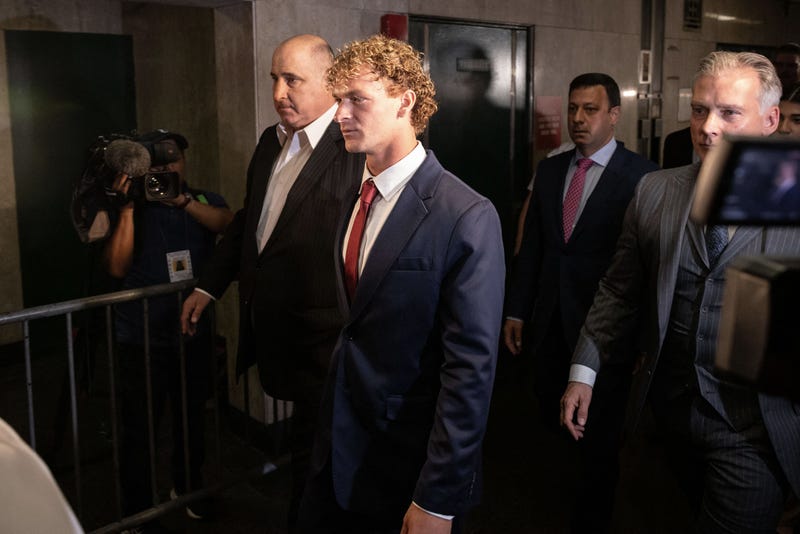
NEW YORK (1010 WINS/WCBS 880) – A judge on Wednesday denied a motion by Daniel Penny's lawyers to dismiss the charges against him in the chokehold killing of Jordan Neely on an F train in SoHo last May.
Penny, 24, returned to Manhattan Criminal Court for the morning dismissal hearing, during which Judge Maxwell Wiley denied the motion to toss out the charges in the case. In his ruling, the judge cited the medical examiner's finding of a chokehold as the cause of death.
Extra security was on hand at the courthouse for the hearing. Outside, protesters yelled and ran after the car when Penny and his attorneys departed.
Penny is due back in court in March, with a potential trial in the fall.
In a statement Wednesday, Penny's lawyers Steven Raiser and Thomas Kenniff wrote: “While we disagree with the Court’s decision not to dismiss the indictment, we understand that the legal threshold to continue even an ill-conceived prosecution is very low. We are confident that a jury, aware of Danny’s actions in putting aside his own safety to protect the lives of his fellow riders, will deliver a just verdict. Danny is grateful for the continued prayers and support through this difficult process.”
Penny previously pleaded not guilty to charges of manslaughter and criminally negligent homicide in the May 1 killing of Neely, a 30-year-old former Michael Jackson impersonator who witnesses said was shouting and begging for money on the train before Penny put him in a minutes-long chokehold, some of which was captured on cellphone video.
The defense has said Neely was acting “insanely threatening” to passengers before Penny stepped in to defend himself and others. They said he didn’t intend to kill Neely.

But prosecutors have said in court filings that the state only has to prove Penny acted recklessly. “The notion that death is not a foreseeable consequence of squeezing someone’s neck for six minutes is beyond the pale,” a filing by the prosecution said, according to CNN.
To get a manslaughter conviction, which carries a prison sentence of up to 15 years, prosecutors would have to prove Penny recklessly caused Neely’s death while being aware of the risk of serious harm.
A conviction for criminally negligent homicide would require the jury to find that Penny unjustifiably put Neely at risk of death, but failed to perceive that risk. The maximum penalty would be four years in prison.
Neely’s killing became a flashpoint in national debates about racial justice and crime. While some have hailed Penny as a hero and good Samaritan, those critical of his actions have described him as a vigilante and killer who hasn’t taken responsibility for his actions.
“A good Samaritan helps those in trouble. They don’t choke him out,” the Rev. Al Sharpton said during Neely's funeral in May. “What happened to Jordan was a crime and this family shouldn’t have to stand by themselves.”
The Associated Press contributed to this report.
